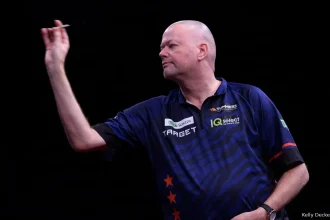For the past 25 years, the Oakland Athletics have been recognized for their innovative use of analytics to identify player value, allowing them to compete despite financial constraints. This strategy was famously chronicled in Michael Lewis’s book “Moneyball: The Art of Winning an Unfair Game,” which highlighted the 2002 A’s team, managed by Art Howe and Billy Beane, that achieved 103 wins and a division title, even after losing key players like Johnny Damon and Jason Giambi.
Over two decades later, many franchises have adopted a hybrid model, merging the “Moneyball” philosophy with substantial payrolls, as seen with teams like the Los Angeles Dodgers, San Francisco Giants, and New York Yankees.
In a recent interview with the San Francisco Chronicle, Lewis expressed his belief that the “Moneyball” approach may have ultimately been detrimental to baseball.
He remarked, “The smart way to play baseball is boring. Don’t steal bases. Don’t swing at bad pitches. Position fielders so the ball is hit right to them.
This makes an already slow sport even less dynamic.” He noted that recent changes, such as bigger bases and restrictions on shifting, are attempts to address this issue, but the sport’s inherent slowness contrasts with modern preferences for more fast-paced entertainment.
Lewis lamented the shift in baseball culture, saying, “It’s much less fun having geeks from MIT running the baseball team than colorful, tobacco-chewing former players.
The manager’s role has diminished, becoming more like that of a middle manager. The influence of reason in front offices has also altered the players’ behavior, making them more rational and less spontaneous.” He concluded that he “kind of” agreed that the focus on analytics has made baseball “more boring.”
Despite these critiques, Dodgers GM Andrew Friedman and Yankees GM Brian Cashman have both acknowledged Beane’s groundbreaking contributions to organizational strategy in baseball.













